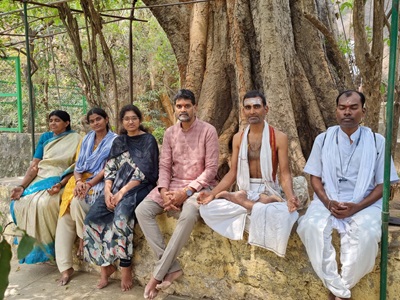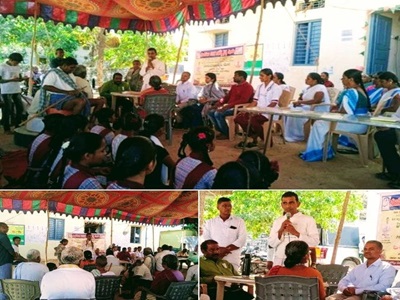Thoughts on Impoverished China
Hello all,
In the past several days, I dare to say we have experienced more of the reality of the impoverishment in China than we have for our entire lives (both Helen and I). Although I have done charity in the past in places such as this, it was when I was six years old, so at that time, the combination of a fuzzy memory and lack of understanding meant that I did not fully comprehend the entirety of the situation of the impoverished.
Yesterday, on June 16th, we traveled around GuZhen, a more developed countryside town. Every location mentioned below, for future reference, is within the AnHui Province. We visited some of the town’s unique areas. The economic structure of the town depends on manufacturing and production of feather industry, sports equipment and clothing, and selling a special geese meat. Goose feathers are locally produced from farms, and make a variety of products such as masks, coats, performance clothing, and decorative items. So many feathers from different avian animals are plucked for mere human pleasure and fashion statement. It is a wasteful and shallow world in this aspect, it seems. Next, we traveled to the nursing homes, which Srini detailed more in the last email. Many young and able bodied people leave this town for outside work, since there are few opportunities in this local town for development. In the nursing homes, while government provides money for food, shelter, and other basic needs, the senior homes are dark and musty, seemingly more like a place to die than a place to live out the last of your days comfortably in. The rooms are bleak and bare, with concrete walls of dark gray color. The entire place feels as if the life was sucked out to create a prison entrapping the most bleakness of life until physical death. We visited some of the elders, who seemed both surprised and pleased to see us. Many of them, as we discovered, are lonely souls with little opportunity for contact and care. They live the last of their days in isolation without any relatives, job, or activities to do. This is a stark difference from the American nursing homes. China truly needs more younger volunteers who can wholeheartedly serve the ones uncared for. We must reach every individual we can, to ease as much suffering as we can. Along the way, we stopped at at a cape jasmine plantation, which can make natural pigments from the fruits. It was wonderful to see nature flourish and view valleys of green rolling across the landscape with fog and rain gently obscuring the hills. Lastly, we went to the egg incubation factory and the goose farm. Although this is not the season for egg production, many geese are still kept there. The keeper of the geese, an elderly man missing most of his teeth, who has no relatives, with skin peeling of from his hands, and slowly going blind warmly welcomed us. Unfortunately, he is unaware of his situation of going blind. Once we informed him of it, he was so afraid and it seems that the years of hard work cracked, and he began shedding tears. It was very moving and sad to see.
The next day, we traveled to Nan Xi, also within the AnHui province. First, we visited the NanXi High School, which is actually one of the better schools here. There are around 300 staff and 4000 students. This school is particularly designed for the poor, so tuition is very cheap (1700 yuan per year, 300 yuan per year for dorms). Most of the students, about 80-90%, live at the school. The principal emphasized on funding for a new gymnasium, which will help with gym, music, and art classes. Srini spoke at two of the classes: Once during break and in math class. Additionally, we toured two classes: English and math. The students were actually very welcoming! They brightly, loudly responded to our visits, and enthusiastically clapped after speeches. We hope that we could inspire them beyond the capability their high school education can give them. In China, the only way out of this kind of situation is through studying and test scores, so pressure is very high. I tried speaking with some students but they were very shy, and did not want to talk too much. A funny note– Srini, when we decided to tour the math class, he decided preemptively that he would teach one concept to the students- which the teacher coincidentally happened to be teaching that very day! It was overall a wonderful tour. We ate lunch at the school and took some fruits that they provided us. Additionally, we visited a sanitation center, which is also very underdeveloped. They have doctors who may be high school graduates nursing patients. They are underpaid, unskilled, and lack proper medical equipment. Afterwards, we traveled to a very mountainous area, with beautiful scenery but a winding road that seemed narrow and riddled with bumps. All around, plantations and farm houses placed quaintly drifted in and out of sight through tall, dense forestry.
The next event truly moved me and aggrieved me. We arrived through light rain, the muddy ground squishing underneath our feet, to a tiny hut with no light, only windows (although surprisingly they had a TV and computer). We met two students (although there are normally four, the other two went to get shots), who are brother and sister. The sister is a 2nd grader- 8 years old. The younger, in kindergarten, is 5 years old. They are both copying characters in that dark, lifeless room. The younger boy cannot even fully reach the desk, but maintains a seemingly painful position where his arms are up to his neck, using a stub of a pencil to copy. Seriously, the pencil is so small I cannot even see it in his tiny hand. But what truly perturbed me was not their conditions, but the look in their eyes. In fact, they refused to look at us, but retained such an air of hopelessness, a type of defeat, and old maturity beyond their years that I felt tears slipping down my face. The younger one is around my siblings’ age, the other older but not by much. Both of their parents are in cities working, and they live with their grandparents. They seem so afraid to communicate, to hope, and just so tired. So tired, as if they have done more than a lifetime’s work in they short lives. The stark comparison between the dire and bleak situation these children are in as opposed to my siblings pained my heart. Even now writing this, I feel tears welling. We gave them everything we could: the fruits from earlier today, pastries…I wish we could’ve done more. The younger boy was so tired he fell asleep while we were taking pictures, nodding off on his desk and seeming to desperately keep awake. He is only 5 years old. The teacher, in my opinion, has not done a good job educating the students. While the older girl has wonderful grades, and she would definitely do well in a city, and the younger boy also does school work beyond his years, they both lack the care and love required in growth, and the teacher did not seem to be gentle with them. As we see later on, this becomes a recurring pattern. As we learned later, the two children walk 2 km to reach the school. Later, if they wish to attend middle school, they must travel by foot to the bottom of the mountain, a half an hour drive even for us on car. We then traveled to another school, also with students whose parents leave to work in cities and send money home. There are two kids as well, with the third on recess. The two kids are 3-4 years old (girl) and 6 years old (boy). While the conditions still far underpass those of the city school’s conditions, the students seem happier, they are more willing to communicate and act more like children. This, I believe, is in part due to the teacher, who is more lively, younger, and overall more caring. Again, we gave them what we could- candy, drinks. The younger girl has to walk 5 km to reach her home, the boy less. I asked her if she walks by herself, and she said that the aunty picks her up. I thought she was talking about her teacher, and I thanked her teacher, who actually replied that it was not her, but her mentally unstable mother who sometimes picks her up. Her grandfather also sometimes walks her, and her father works in another city. Both parents of the older boy work in the city. Once again, we see a lack of care for the younger people in China.
The last two stops are at the middle school on the bottom of the hill and another bigger hospital. The middle school seems to be in better condition, and once again Srini made a speech at one of the classes. This school is missing a racing track, they also need funds. The kids are so lively though. They are boisterous, talkative, and one of the boys even walked up to the platform to shake Srini’s hand during his speech. Even so, their conditions are still quite poor. Lastly, we visited a hospital, which really has better conditions than the center from before. Both of these are government built. Once again, the director asks for more funding. It seems that everywhere we go, they lack funding. However, what everyone truly lacks is not money, but care and love.
I will do a conclusion now of all my thoughts from these few days. First, I am disgusted by the Chinese government. While they provide funds for the patients to receive free to very little pay medical attention (I didn’t detail this, but around 85% funds are covered by government, unless it is medicine and if the cure takes more than 200,000 yuan) they also disregard many things. The system of education is a cruel system of robot production that erases all personality and interest from the student. For all of the students, the only way out of their poverty is through their test score. And in a highly populated and competitive province such as AnHui, not many of them will make it. Studying is their way of life, their lifeline of hope. Even then, some of them will not have that opportunity. The education system must change, so must the system of government. But this is something we cannot change as of right now, because in doing so we will be opposing an entire government. Second, I am disgusted by the extravagant life most government officials live. Although I did not mention it, we were invited to wasteful, luxurious dinners by government officials. We have dined on the best, been provided with the best wine, but only 60% of the food on the table is eaten. Alas, this is how China does business, through toasts and flattery and whispered proposals. Thirdly, we must provide care for the people. Both old and young. We must show them that there is a better way to live. I would like to come back and volunteer, this is where people truly need us. The Chinese society and education system is a cycle of oppression and being stepped on, being molded for what higher ups want. We may be economically developed, but we are far behind as a society. Now, more than ever perhaps, I can understand Srini’s thought process of creating smaller scale movements that will link up together in waves. I will serve in those links however I can. Thank you all for your support, your care, and your energy. We must keep on working hard to produce a transformed world, a transformed society.


